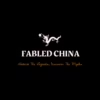Emperor Shennong devoted his entire life to advancing agriculture, commerce, and medicine for the benefit of humanity. His contributions had a lasting impact, and his descendants continued to make remarkable contributions. Numerous legends have been passed down about his offspring, many of whom were legendary figures in Chinese mythology.
According to legend, Shennong’s wife was a daughter of the Chishui clan, named Tingyao. Together, they had a son named Yanju. Yanju’s descendants were known as Jiebing, and Jiebing had a son named Xiqi, who in turn gave birth to Zhuyong. Zhuyong was later banished to the region along the Yangtze River, where he fathered Gonggong. Gonggong’s descendants were known as Shuqi, and they lived near the river as well. Gonggong had another son, Houtu, who gave birth to Yeming, the God of Time. Yeming had twelve sons, each representing a month of the year, thus governing the twelve months. This is how the twelve months of the year came to be named after Yeming’s sons. In this lineage, Zhuyong became the god of fire, Gonggong the god of water, and Houtu the god of earth.
Zhuyong, the Fire God
Zhuyong, also known as the Fire God, was very compassionate. He resided in the Guangming Palace on Mount Kunlun. In ancient times, the world was barren, with vast forests, and people survived by hunting wild animals, eating them raw. Upon seeing this, Zhuyong felt sympathy for the people. He saw that they ate their prey uncooked, which was dangerous, so he passed down the knowledge of fire, teaching them how to use it. People fetched fire from the Guangming Palace, and by roasting their meat, they could not only make it tastier but also avoid illness. This made Zhuyong widely revered as the Fire God.
Gonggong, the Water God
In contrast to Zhuyong, Gonggong, the Water God, was known for his violent temper. He lived in the East Sea and grew enraged upon seeing that people revered the Fire God but ignored the importance of water. Gonggong became jealous and, driven by anger, he decided to attack Zhuyong. Despite the efforts of Houtu, the Earth God, to stop him, Gonggong led his followers to the Guangming Palace, attacking the palace and extinguishing the eternal divine flames. The world was plunged into darkness.
This angered Zhuyong, who summoned a fire dragon and confronted Gonggong. The fire dragon, blazing with flames, lit up the earth, and the divine fire in Guangming Palace reignited. In retaliation, Gonggong summoned a great flood from the four seas, flooding the mountains and trying to extinguish the flames. However, water always flows downward, and as the flood receded, the fire burned even stronger.
Zhuyong, riding his fire dragon, pursued Gonggong and attacked him with a fierce flame, scorching him severely. Gonggong fled to the sea, but Zhuyong followed him, chasing him all the way to the edge of the sky. Gonggong, desperate, crashed into Mount Buzhou (the pillar supporting the heavens), causing a massive earthquake. The mountain collapsed, creating a hole in the sky and fissures in the earth. Fires raged, and floods erupted from underground, bringing forth dragons, snakes, and beasts that devoured the people. This catastrophe was followed by the legendary repair of the heavens by Nuwa.
After the great disaster, the Earth God Houtu reprimanded both Zhuyong and Gonggong for their actions. Zhuyong regretted his conflict with Gonggong, and Gonggong’s violent temper was said to have softened afterward. From then on, the saying “water and fire cannot coexist” became widely known. People began to revere not only the Fire God and the Water God but also the Earth God.
Lingxie and the Human-Fish People
Shennong’s grandson, Lingxie, was the ancestor of the Huren people, who were described as having human faces and fish bodies, with hands but no feet. They could ride the clouds and move freely between the heavens and the earth. It was said that after Lingxie died, he was revived in a strange way. A northern wind blew his body to a large water spring, where he merged with a fish in the spring and transformed into a human-faced fish, known as the Fish Woman. While originally not dangerous, the Fish Woman could become aggressive if deprived of food. If controlled by humans, it could attack, causing greater harm. If the bond between the human face and the fish body was broken, both would die.
Boling and the Origins of Music and Warfare
Another of Shennong’s grandsons, Boling, is said to have fallen in love with the wife of Wu Quan, known as Anvifu. Anvifu gave birth after three years of pregnancy to three sons: Gu, Yan, and Shu. From Shu’s descendants, the art of making arrow targets began, while Gu and Yan’s descendants were responsible for making bells, chimes, and creating musical compositions. These creations contributed to the development of music and warfare in ancient times, with arrow targets being the earliest weapons of war and the bells and chimes becoming important musical instruments that helped shape the development of music.
Legacy of Shennong’s Descendants
The descendants of Shennong played crucial roles in shaping Chinese mythology and early civilization. Their contributions, both through legends and practical innovations, laid the foundation for many aspects of life, including agriculture, medicine, music, and weaponry. These stories remind us of the cultural and spiritual heritage that was passed down from one generation to the next, influencing the course of Chinese history.
